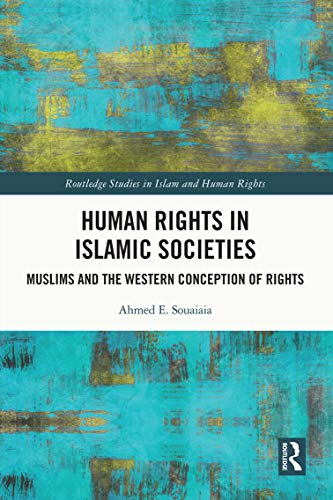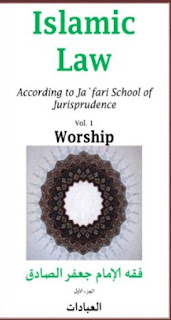Distribution of the Heritage
As pointed out earlier, inheritance results due to marriage or con sanguinity, and there is no difference of opinion that the husband or wife has a share with all other heirs, the husband being entitled to one-fourth when there are descendants and one-half in their absence, and the wife to one-eighth in the presence of descendants and one fourth in their absence. The schools differ concerning a daughter's offspring, whether he/she is in the category of descendants whose presence is capable of lo.wering the share of the spouse from its higher to its lower limit or if his/her presence and absence has no effect. Details of this will come while discussing the inheritance of spouses. There is again no:difference of opinion that the distribution of the heritage begins with ashab al-furud (the 'sharers,' whose shares have been determined by the Qur'an) and that there are six kinds of these shares. But the schools differ regarding the number of sharers entitled to these sbares and regarding the residuaries (those entitled to the re mainder after the sharers have received their shares).
The schools also differ about the capacity to inherit of: daughter's children; uterine paternal uncles and aunts; and maternal uncles, aunts and grandfather. We mentioned earlier that these heis fall in the cate gorS of distant kindred in the classification adopted by the four Sunni schools, and the Nles applicable to them differ from those applicable to the sharers and residuaries.
Shares and Shareholders
A 'share' (al-fard) is a fixed portion (of the heritage) determined by the Qur'an. According to consensus there are six such shares: 1/2, 1/4, 1/8, 1/3, 2/3 and 1/6. Some have summarized it by saying: "1/3
and 1/4, and the double and half of each."
Half is the share of the only daughter if there is no son sharing with her, and according to the four Sunni schools the son's daughter is like the daughter, while according to the Imámís she takes the place of her father. Half is also given to the only sister, either full or half on the father's side, if there is no brother sharing with her. A husband gets half if the wife has no offspring to inherit her.
One-fourth is the husband's share if the wife has a descendant and the wife's if the husband has no descendant.
One-eighth is the share of a wife if the husband has a descendant. Two-thirds is the combined share of two or more daughters in the absence of male children, and of two or more sisters, full or consanguine, if there is no brother sharing with them.
One-third is the share of the mother if the decedent has no male child, or brothers whose presence, as per the forthcoming details, pre vents her from inheriting more than one-sixth. Two or more uterine brothers and sisters also inherit one-third.
One-sixth is the share of the father and the mother in the presence of a child. The mother also gets one-sixth if the decedent has brothers. The same is the share of a single uterine brother or sister. The inheriting of one-sixth as sharers by the above three enjoys concurrence. The four Sunni schools add to these sharers entitled to one-sixth, one or more son's daughters along with the daughter of the decedent. Hence if the decedent has a daughter and a son's daughter, the former will take half and the latter one-sixth. But if the decedent has two or more daughters and a son's daughter, the latter will be prevented from inheriting unless she has a male counterpart of her class, such as when she has a brother or, lower in order, her brother's son, i.e. the great grandson of the deceased. One-sixth is also given to the paternal grand father in the absence of the father. A grandmother, just like a mother, inherits a sixth if she is a paternal or maternal grandmother or mother of the paternal grandfather. Thus if she is the mother of the decedent's mother's father, she will not inherit. If two parallel grandmothers, such as the mother's mother and the father's mother are present together, the share of one-sixth will be equally divided between them.l 1
Some of the six different shares coexist with some others. Hence, a half can exist with a half (e.g. husband and sister, each receiving a half), with one-fourth (e.g. husband and daughter, she receiving a half and he one-fourth), with one-eighth(e.g. wife and daughter, the former getting an eighth and the latter a half), with one-third (e.g. husband and mother, where her share is not reduced by a brother, he receiving a half and she a third), and with one-sixth, (e.g. husband and the only uterine brother or sister, the former receiving a half and the latter one-sixth).
One-fourth can coexist with two-thirds (e.g. husband and two daughters, he receiving a fourth and they two-thirds), with one-third (e.g. wife and two or more uterine brothers or sisters, she receiving one fourth and they one-third) and also with one-sixth, (e.g. wife and a single uterine brother or sister, the former receiving one fourth and the latter one-sixth).
One-eighth can coexist with two-thirds (e.g. wife and two daughters, she receiving one-eighth and they two-thirds) and with one-sixth (e.g. wife and either parent in the presence of a child).
Two-thirds can coexist with one-third (e.g. two or more cousin guine sisters along with uterine brothers) and with one-sixth (e.g. two daughters and either parent).
One-sixth can coexist with itself (e.g. parents in the presence of a child). Those shares which do not coexist are: one-fourth and one-eighth, one-eighth and one-third, and one-third and one-sixth.




0 comments:
Post a Comment